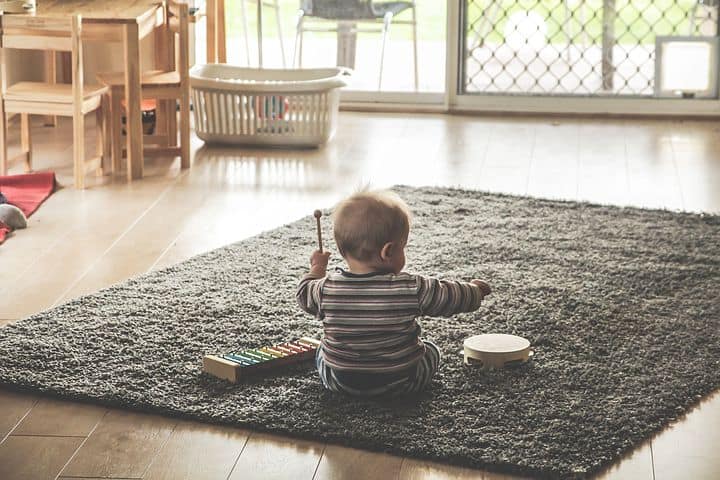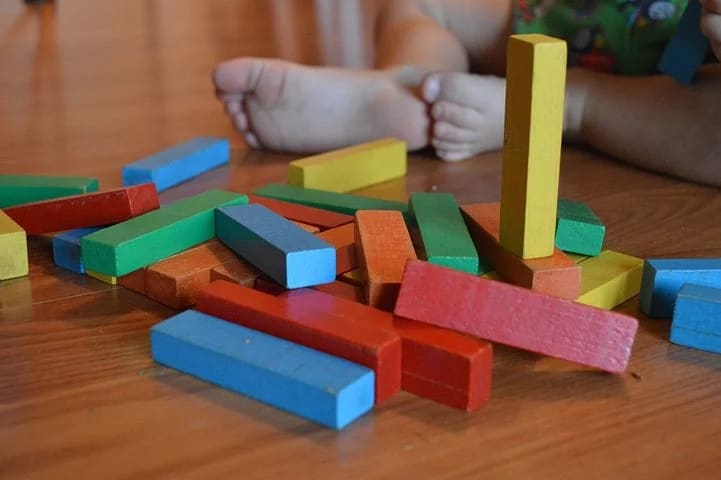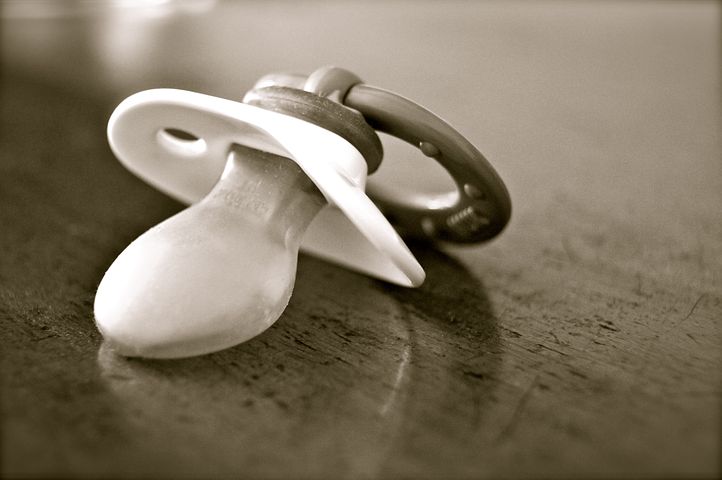How Many Naps For 11 Month Old – The Ultimate Sleeping Guide
As a parent with a newborn, it’s necessary to ask yourself how many naps are for 11 month old babies are appropriate. Don’t worry because this guide has got you covered about this topic and others relating to it as well.
At 11 months, most babies can sleep through the entire night without raising any complaints at all. Additionally, they can take two naps a day with each nap lasting for about 2 – 2 ½ hours.
Only a few, and we mean a very few number transitions to one nap a day by the time they are ten months old. Naturally, your child will fully transition to one nap a day between 15-18 months old.
This is because as your baby gets older, the maximum time they can stay awake gets longer. Therefore, it’s easy to predict the number of naps your baby can achieve during the day as they get older.
The case is different with every baby depending on several factors. That’s why it becomes necessary for you – the parent, to know how many naps for an 11-month-old baby are required.
Understand Your Baby’s Eat, Play, and Sleep Patterns
According to Baby Center, you have to understand precisely what most babies at this age want. Therefore, it would be best to track their cues for you to fully understand your child’s eating, playing, and sleeping patterns.
Here is a list of requirements for babies aged between 11-12 months old:
• Optimal Breastfeeding – 11-12 months old babies require at least 22-32 ounces of breastfeeding milk a day. This is the same with formula milk, and they must consume such an amount to leave space for other types of healthy food.
• Solid Food
• 15 Hours of Sleep – Within 24 hours, 11-12 months old babies should be sleeping for at least 15 hours. This includes their nighttime sleep and, as mentioned earlier, the two naps during the day that is common for 11-month-olds.
Finally, your baby also needs some time to learn new skills as they grow older and wiser. Such skills include playing, engaging their imagination, and interacting with you.

Besides that, you can also add to their ‘busy’ schedules with sleeping, playing, and eating routines. It’s more comfortable and more practical when you do this because you understand your child more than anyone else.
How Long Should an 11 Month Old Stay Awake Between Naps?
Keeping an 11-month-old baby awake for too long is one of the most common mistakes most parents make. At this stage, your baby needs more sleep because it’s a phase of change.
This is the time they start to experience some significant changes in their mental and physical states. Your child is growing, which means they need optimal time in bed to digest the various changes they are experiencing.
So, yes – your baby needs more sleep time now than you might think they do. And if they stay awake for about 7 hours for 24 hours, you should be alerted.
Although it mostly happens to most parents, it’s a sign that your baby’s sleeping routine isn’t going the right way. Of course, every child is different, and each comes with their uniqueness.
You can know that your child has been awake for too long if they resist any form of soothing and become fussy when you want them to take a nap. Also, an overtired baby doesn’t necessarily sleep soundly and adequately.
Therefore, don’t ignore their wakefulness maxima, thinking that the best way to put them down is by letting them get tired till they sleep. Understand that if your 11-month-old baby stays up for too long, nighttime sleep will eventually become a problem.
Nap Schedule for 11-12-Month-Old Babies

At this age, most babies need at least 3-4 hours of wake time during the day. This time should be achieved between the two naps that are usually common for 12-month-old babies.
Therefore, you’ll need to aim for about 15 hours of sleep for 24 hours for your 12-month-old baby. This includes 11-12 hours of nighttime sleep plus the 2-3 hours that should be achieved when taking their two naps a day.
Don’t worry if your child starts to experience sleep regression problems this age. It’s common and healthier than resisting taking naps during the day.
To cope with the regression, you can stretch their wakefulness window slightly so that the 2-nap schedule also gets longer.
Below is a sample sleeping schedule of a 12-month-old baby:
• 6:30 AM – Wake Time
• 9:45 – 10:45 – First Nap (approximately one hour long)
• 10:45 – 2:15 – Wake Time (about 3 hours long of staying awake)
• 2:15 – 3:15 – Second Nap (another one hour of napping)
• 3:15 – 6:15 – Wake Time (around 3 hours of wake time before going to bed)
• 7:00 – Bed Time
Note that this sleeping schedule isn’t a standard for all babies aged 12 months old. Sleep needs vary in different children, with some sleeping more or less in the same age group.
11 Month Nap Regression
Like mentioned earlier, your baby is growing and is almost having their first birthday. Therefore, don’t expect them to be the same.
Changes occur in different ways and at other times. And at 11 months old, you might sit comfortably thinking that your child has fully settled into their routine sleeping schedule (2-naps a day).
Although not all, most babies experience the 11month sleep regression that frustrates the parents. However, this is understandable considering that you had perhaps already settled into their routine sleeping schedules.
So, what happens now? Well, you have to deal with it, of course – but in the best possible way.
You first need to ask yourself why your child is regressing from their routine sleeping schedule. Because once you understand the cause, solving the issue becomes more straightforward.
What Causes the 11 Month Sleep Regression?
Like the 8-month sleep regression, this one also happens because your baby is growing stronger, wiser, and engaging in even more activities. Besides that, there can also be a medical issue with your child, which you should nullify before anything else.
If nothing is wrong with your baby medically, the other things causing them regression can be quickly dealt with. As you may know, many physical and mental milestones go down from 8-12 months old.
Therefore, your baby is still in the development window. And like any other development phase, changes are inevitable.
These changes occurring in your little one also bring their consequences – one of them being the sleep regression. Therefore, it’s normal for your child to start experiencing a decrease in their naptimes, especially during the day.
You’ll find that your baby wants to stay awake more now than before. It excites them because they learn new stuff, interacts with you, and have more adrenaline in them.

As their parent, it’s also a fun and proud moment when you see such milestones happening. It throws you off, and without even knowing it, you find yourself excited about the idea of your baby staying awake for long hours.
This is until they start demanding more than bedtime when it’s their time to sleep. At this point, there are no more excitements – for the parents, especially if you are waking up early for work.
How to Solve the 11 Month Sleep Regression
1. Start the First Nap Earlier
If your baby starts waking up earlier than 6 AM, note that it can cost you more problems as the day progresses. Therefore, you need to start their morning naps more first than usual.
So, if they start waking up earlier, you need to move their morning naps from 9 AM to about 8-8:30 AM. This will help you put them down more comfortable and quicker.
2. Ensure they get an Hour of napping
After putting your baby down, ensure that they achieve at least one hour of nap time – not longer or shorter than thirty minutes. When you do this, it prepares your child adequately for the second nap of the day.
But for you to ensure that your child’s morning nap lasts for one hour, you have to create an enabling environment for them. This means no noise, a cozy place to sleep, and well-fed before taking a nap.
Additionally, a short morning nap ensures that the baby doesn’t nap again when it’s too late in the day. Because that happens, the nighttime sleeping time will be significantly affected.
3. Allow your baby to settle down
Again, your baby will be more excited to learn new things than napping during the day. So, daily naps become less important to them if they just started to walk or interact with you.
Therefore, it’s common for their daytime naps to regress, which they still need at this age. And while putting them down is a good option, sometimes it would be best to let the process happen naturally.
Don’t get alarmed if it takes them some time because, like us, babies too have a system that demands something when they feel it’s insufficient. Combining this and the other tips can help you reduce the 11-month sleep regression phase from weeks to just days.
Sleep Training for 11-Month-Old Babies
As mentioned earlier, 11-month-old babies sleep for about 15 hours during the day (24hrs). But if this isn’t the case with your baby, you should start to consider sleep training your baby.
Sleep training doesn’t only help you put your baby to sleep, but also teaches your baby to do it themselves. Below are some of the best sleep training tips to help your 11-month-old baby sleep soundly and adequately.
1. Have a Noise-Free Bedroom
This is the most common and productive way of putting your baby down. Sleep time can be well achieved with a calm and quiet bedroom.
Therefore, ensure that there are no distractions or noise around the area where your baby is sleeping. This not only helps them to fall asleep quicker but maintaining a calm and quiet sleeping environment for your baby also stretches their sleeping or napping time.
Other than a noise-free bedroom, ensure that the room they are sleeping in is darkened. This applies even during the day time naps they will be having.
2. Indicate it’s time to sleep
According to research, a consistent bedtime routine will help your baby achieve the most out of their sleeping time. Remember, your child is mostly up and resisting sleep because of the excitement of learning new things.
Because babies at 11 months can now understand some cues based on behavior and environment, it would be best to communicate their language with them. So, the best way to join in on their excitement but in a manner that tells them it’s time to fall asleep.
The research further narrates that you have to indicate relaxing and calming cues when it’s time for sleeping. And the best way to incorporate this is during the nightly bedtime routine.
3. Establish Standard Bedtimes
Late or inconsistent bedtimes cause your baby to have worse sleep patterns. Therefore, you need to create a standard bedtime routine – one that you must follow accordingly to ensure optimal bedtime is achieved.
It’s one of the most important things you can do for your baby, and it makes them feel better.
4. Teach them to fall asleep independently
Because your baby is developing mentally and physically, you need to start teaching them to fall asleep independently. They are old enough to do it by themselves, and you should start reducing the number of times you soothe or rock them to sleep.
They have to know they can do it themselves, and rest assured that your baby won’t disturb you during the night if they wake up. Such knowledge will help them fall back asleep independently without you rocking or soothing them.
Conclusion
As you’ve seen, how many naps for an 11 month old baby is a question that consists of different topics. You have to look into the baby’s mealtime, bedtime, and wake time, among other relevant associations.
Either way, this guide is here to help you understand how to handle situations relating to the sleeping schedule for your 11-month-old baby.










